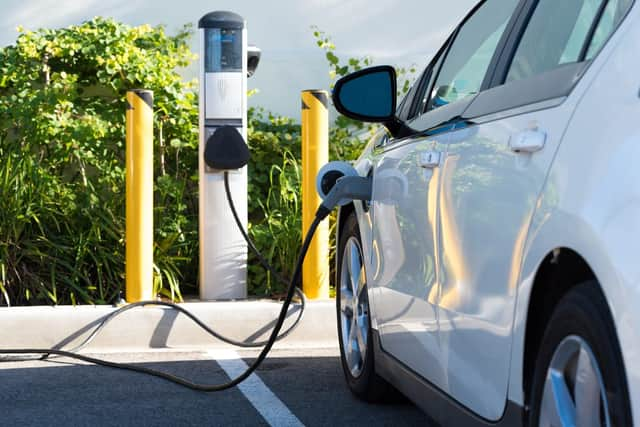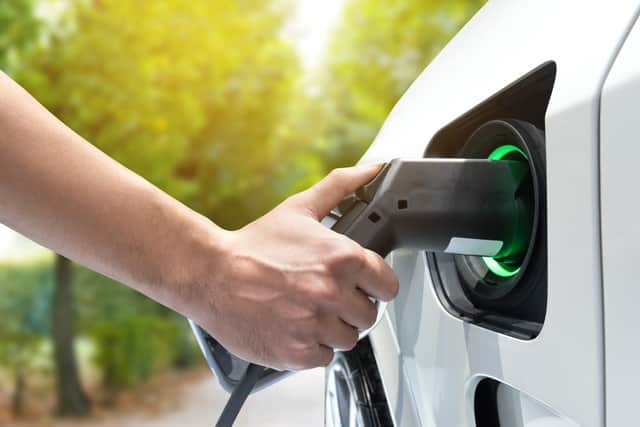Public EV charging up to 10 times more expensive than at home


Charging an electric car at a public charging point can cost almost 10 times more than using a home wall box, according to new research.
Consumer title What Car? Has compared a variety of public charging networks with an average home charging cost, exposing the huge range in costs depending on when and where drivers charge their EVs.
Advertisement
Hide AdAdvertisement
Hide AdIt’s no surprise that charging on a slower home device is cheaper than using a public charge station but the research found that the difference can be as much as £41 for drivers using the latest, fastest public chargers.


What Car?’s researchers looked at how much it costs to charge an Audi E-Tron from 10 per cent to 80 per cent. On an average night-time energy tariff of 7p per kWh that works out at £4.66 but on the latest Ionity ultra-rapid chargers it costs a staggering £45.89.
Paying for convenience
Of course, Ionity’s 350kW chargers can charge an EV in as little as 30 minutes, while a 7kW home charger will take nine hours longer, but it’s clear that such convenience comes at a price.
Even at slower public chargers some networks are still far pricier than charging at home. Getting the same battery boost for an E-tron at both a 50kW Shell Recharge point and a 50kW Ecotricity socket costs £25.94, although Ecotricity rates are cheaper for its home energy customers.
Advertisement
Hide AdAdvertisement
Hide AdAn estimated 40 per cent of UK homes don’t have a driveway, meaning many motorists could be completely reliant on public charging points.
What Car?’s editor, Steve Huntingford, commented: “Although there are still a lot of slow (3kW) public charging points that are free to use, you’ll have to pay if you want a quick energy fix. And this is where the costs can rack up if you don’t research the various networks in advance.”
The research found that public charger rates for a 10 per cent to 80 per cent charge varies hugely, with the type of charger, its location and even the driver’s home electricity supplier influencing how much it will cost. Prices ranged from 69p per kW to 10p per kW, with an average of 28.6p across all the chargers tested. That’s twice an average domestic daytime rate and four times the average overnight.
What Car? found that car owners who regularly need to use public charging networks could save money by signing up for a scheme with a one-off or a monthly fee because these often have a lower energy usage rate. A Source London Full plan, for example costs £4 a month, but just £6.32 every time you charge your car up.
Advertisement
Hide AdAdvertisement
Hide AdSome charging networks, such as Ecotricity also offer discounts to customers of certain home energy providers, and Mini is offering buyers of its new EV two years’ free membership of the Polar Plus network.
In Scotland, a £20 annual Chargeplace Scotland subscription gets drivers free access to nearly 1,000 public charging points.
The researchers also warned that drivers need to watch out for the hidden costs of using public chargers. Some EV-charger equipped car parks in London charge £9 per hour for parking with no discount for those using the chargers, and What Car?’s research found overstay fees levied by charging networks to discourage that ranged from £10 to £21 per hour.
What Car? examples of public charging costs for an Audi E-tron
Advertisement
Hide AdAdvertisement
Hide AdNetworkCost per kWh10-80% chargeIonity (350kW)£0.69£45.89Polar Contactless (150kW)£0.40£26.60
Ecotricity (22kW, 43kW, 50kW)£0.39£25.94Shell Recharge (50kW, 150kW)£0.39£25.94Instavolt (50kW to 125kW)£0.35£23.28Polar Instant (150kW)£0.35£23.28Genie Point (43kW, 50kW)£0.30£20.95^Polar Contactless (43kW, 50kW)£0.30£19.95ESV EV Solutions (43kW, 50kW)£0.29£19.29ESV EV Solutions (43kW, 50kW)£0.25£16.63Polar Plus (150kW)£0.20£13.30**Ecotricity domestic customers£0.19£12.64Polar Plus (43kW, 50kW)£0.15£9.98**Source London Flexi (22kW)£0.12£7.91***Source London Full (22kW)£0.10£6.32